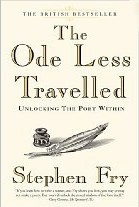
|
De/Compositions:
101 Good Poems Gone Wrong, W.D. Snodgrass (Introduction by Donald Hall)
(2001).
Finalist for the 2001 National Book Critics Circle Award in Criticism.
W.D. Snodgrass (a Pulitzer Prize-winning poet) shows you how to tell good poetry from bad poetry in a special
and delightful way -
by rewriting "good" poems.
Those poems often end up not only written differently but also badly, for our amusement and instruction, when
Snodgrass rewrites works by Shakespeare, W.H. Auden, Elizabeth Bishop, and other superb poets.
Snodgrass changes words and syntax.
He retains the sense, meter, and length of the various poems he "revises."
His book displays each reworked version with its original, so the reader sees the shifts
in words, lines, and stanzas. It's like seeing your life go backward, when a well crafted
and revised poem degenerates into what could barely pass for a clumsy second draft.
Reinforcing the idea that every word is important in a poem, Snodgrass shows how
often only a very small change can make a large difference.
Snodgrass includes a short essay in each of his five sections. Mainly he lets the
poems instruct the reader with minimal intrusion from him.
|
|

|
The Making of a Poem: A Norton Anthology of Poetic Forms,
Edited by Mark Strand and Eavan Boland
(2000).
Explores poetic forms and offers an anthology
of poetry.
Editors Strand and Boland describe various metrical forms that
they say provide the "architecture" of poetry. They explore:
the ballad, blank verse, the heroic couple, the pantoum, the sestina, the stanza, the sonnet, the villanelle.
They give a brief section on meter, then chapters on "shaping" forms,
by which they mean the "environment" (that fashionable word)
or content of poetry. The "shaping" forms they present here include:
the elegy (a lament); the pastoral; the ode (originally a poem of praise and applause).
The book concludes with a section on open forms.
|

|
Rhyme`s Reason: A Guide to English Verse, Third Edition, John Hollander
A charming book, particularly because
Hollander offers a sestina about sestinas, a sonnet about how to write sonnets,
a haiku about how to write haiku, etc.
The writing is not only entertaining - it is instructive.
Includes a mini-anthology of forms treated in the text.
|

 Index of Poetry.
Index of Poetry.
 Highlights for Poetry.
Highlights for Poetry.
 Books of Poetry Form.
Books of Poetry Form.
 How to Write Poetry.
How to Write Poetry.
 Haibun.
Haibun.
 Haiku.
Haiku.
 Hay(na)ku.
Hay(na)ku.
 Rengay.
Rengay.
 Tanka.
Tanka.
 Concrete.
Concrete.
 Ghazal.
Ghazal.
 Lai.
Lai.
 Pantoum.
Pantoum.
 Rondeau.
Rondeau.
 Rubáiyát.
Rubáiyát.
 Sestina.
Sestina.
 Skaldic verse.
Skaldic verse.
 Sonnet.
Sonnet.
 Terza rima.
Terza rima.
 Triolet.
Triolet.
 Tritina.
Tritina.
 Villanelle.
Villanelle.
 El Poema Concreto.
El Poema Concreto.
 Books of Poetry Form.
Books of Poetry Form.







